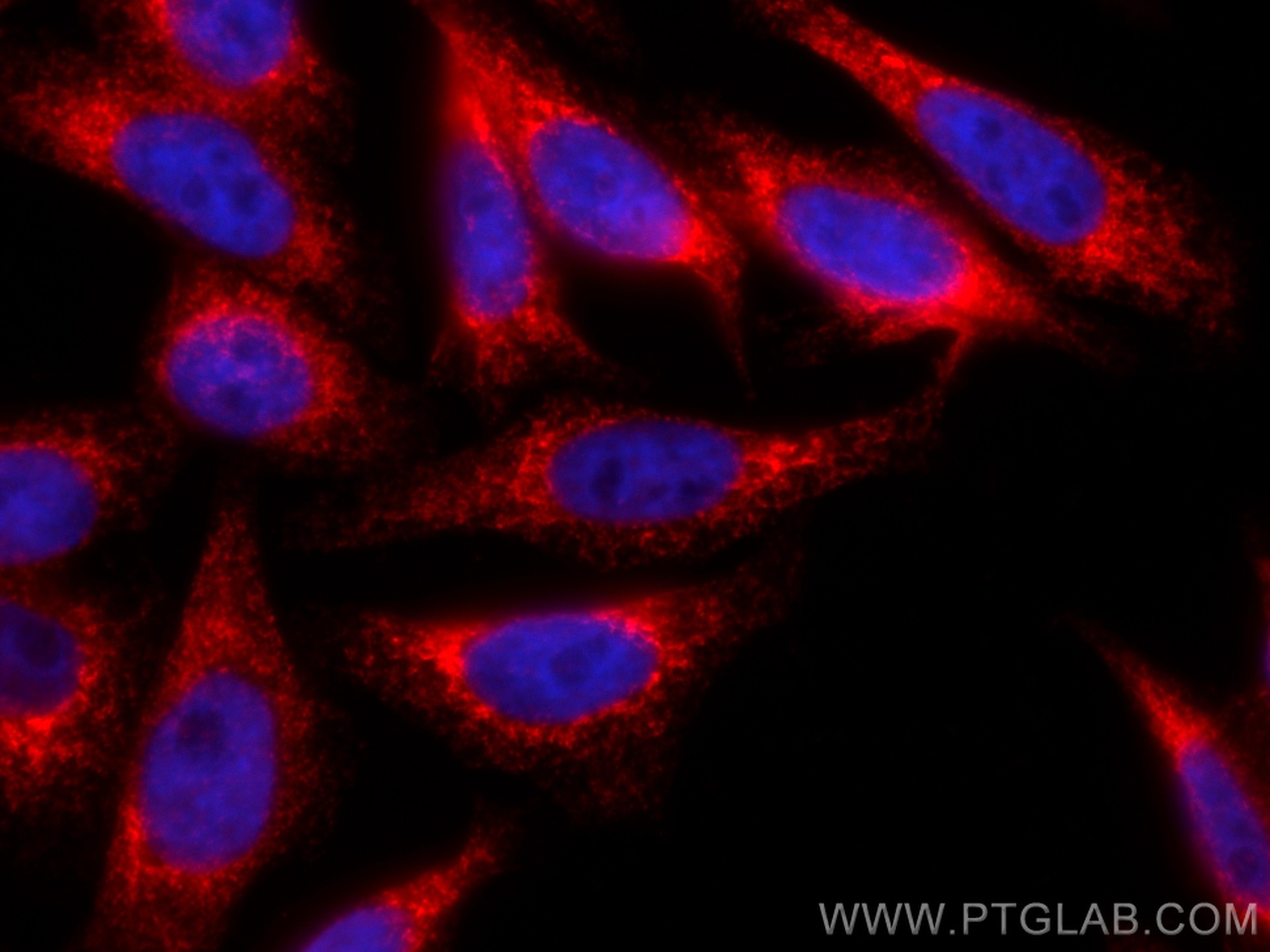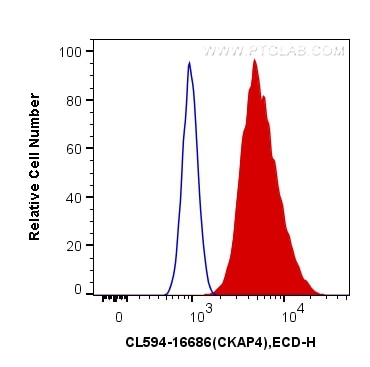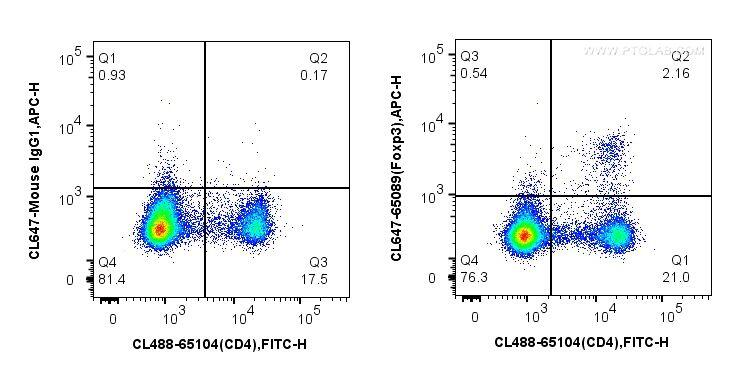Anticorps Polyclonal de lapin anti-CKAP4
CKAP4 Polyclonal Antibody for FC (Intra), IF
Hôte / Isotype
Lapin / IgG
Réactivité testée
Humain, rat, souris
Applications
IF, FC (Intra)
Conjugaison
CoraLite®594 Fluorescent Dye
N° de cat : CL594-16686
Synonymes
Galerie de données de validation
Applications testées
| Résultats positifs en IF | cellules HepG2, |
| Résultats positifs en cytométrie | cellules HeLa |
Dilution recommandée
| Application | Dilution |
|---|---|
| Immunofluorescence (IF) | IF : 1:50-1:500 |
| Flow Cytometry (FC) | FC : 0.40 ug per 10^6 cells in a 100 µl suspension |
| It is recommended that this reagent should be titrated in each testing system to obtain optimal results. | |
| Sample-dependent, check data in validation data gallery | |
Informations sur le produit
CL594-16686 cible CKAP4 dans les applications de IF, FC (Intra) et montre une réactivité avec des échantillons Humain, rat, souris
| Réactivité | Humain, rat, souris |
| Hôte / Isotype | Lapin / IgG |
| Clonalité | Polyclonal |
| Type | Anticorps |
| Immunogène | CKAP4 Protéine recombinante Ag10019 |
| Nom complet | cytoskeleton-associated protein 4 |
| Masse moléculaire calculée | 602 aa, 66 kDa |
| Poids moléculaire observé | 63 kDa |
| Numéro d’acquisition GenBank | BC082972 |
| Symbole du gène | CKAP4 |
| Identification du gène (NCBI) | 10970 |
| Conjugaison | CoraLite®594 Fluorescent Dye |
| Excitation/Emission maxima wavelengths | 588 nm / 604 nm |
| Forme | Liquide |
| Méthode de purification | Purification par affinité contre l'antigène |
| Tampon de stockage | PBS avec glycérol à 50 %, Proclin300 à 0,05 % et BSA à 0,5 %, pH 7,3. |
| Conditions de stockage | Stocker à -20 °C. Éviter toute exposition à la lumière. L'aliquotage n'est pas nécessaire pour le stockage à -20oC Les 20ul contiennent 0,1% de BSA. |
Informations générales
CKAP4, also named as Climp-63, is a 63 kDa cytoskeleton-linking membrane protein. It is the partner of triadin. CKAP4 is responsible for this association of triads and microtubules.
Protocole
| Product Specific Protocols | |
|---|---|
| IF protocol for CL594 CKAP4 antibody CL594-16686 | Download protocol |
| FC protocol for CL594 CKAP4 antibody CL594-16686 | Download protocol |
| Standard Protocols | |
|---|---|
| Click here to view our Standard Protocols |




